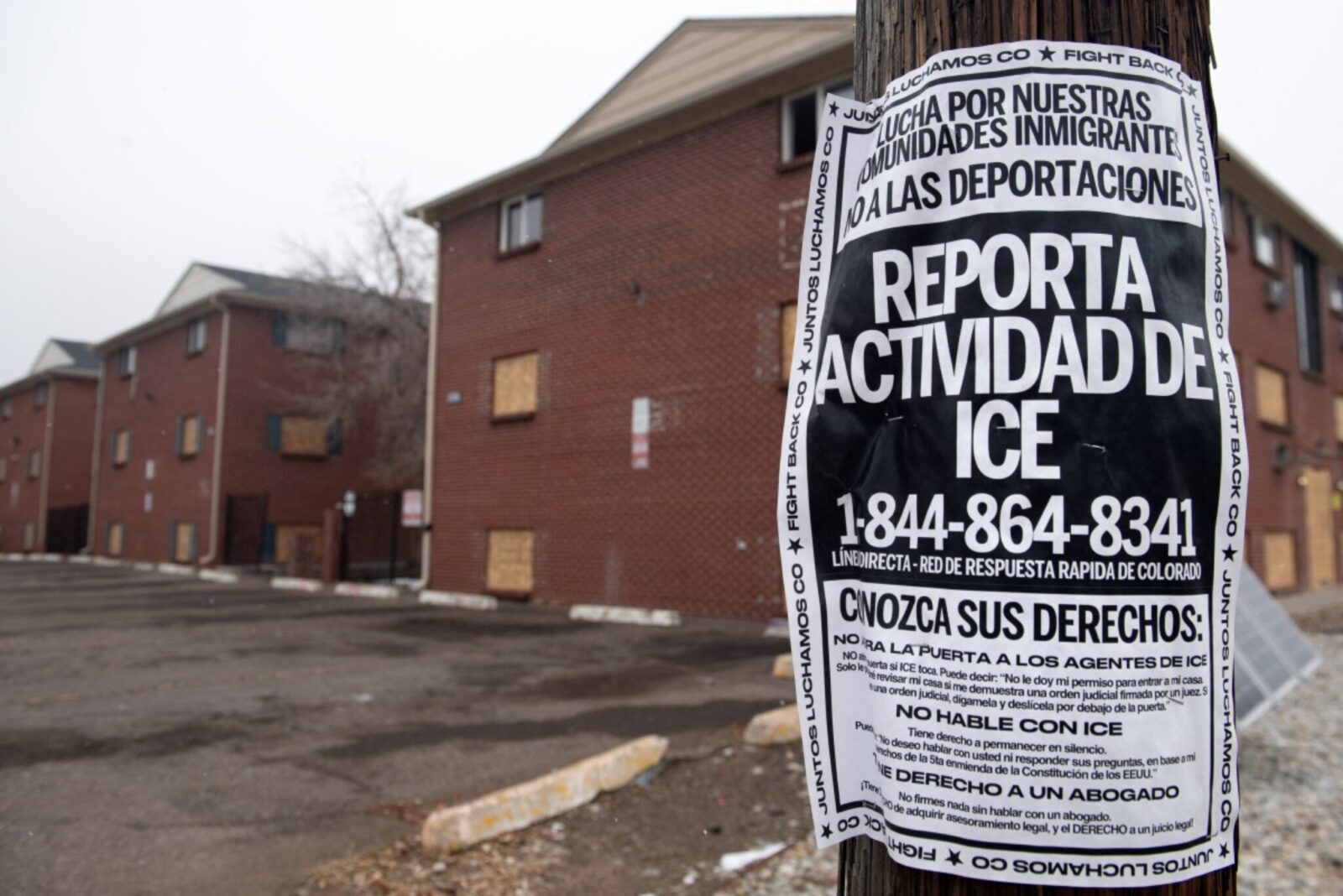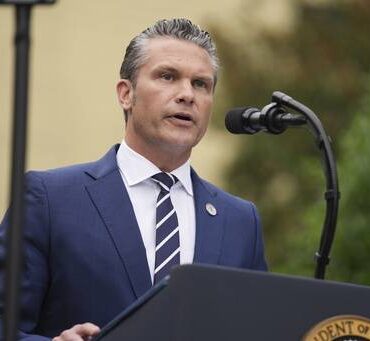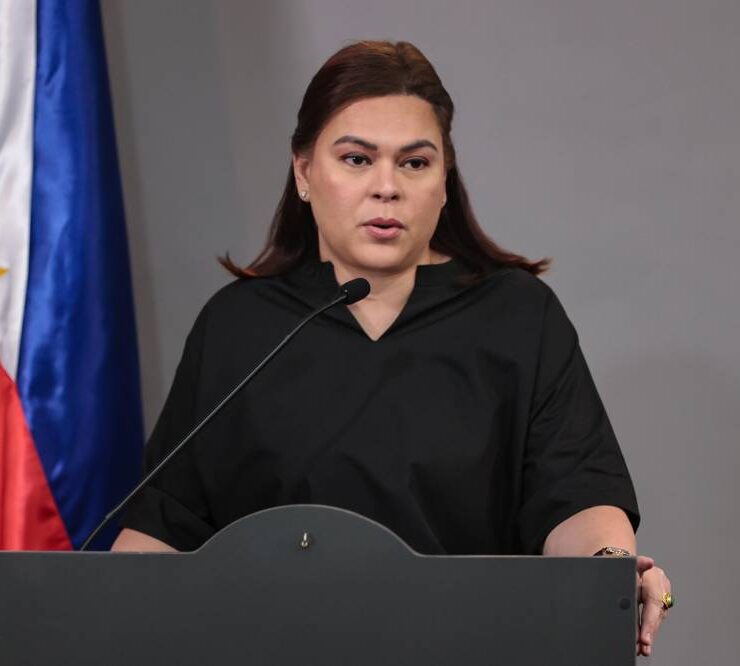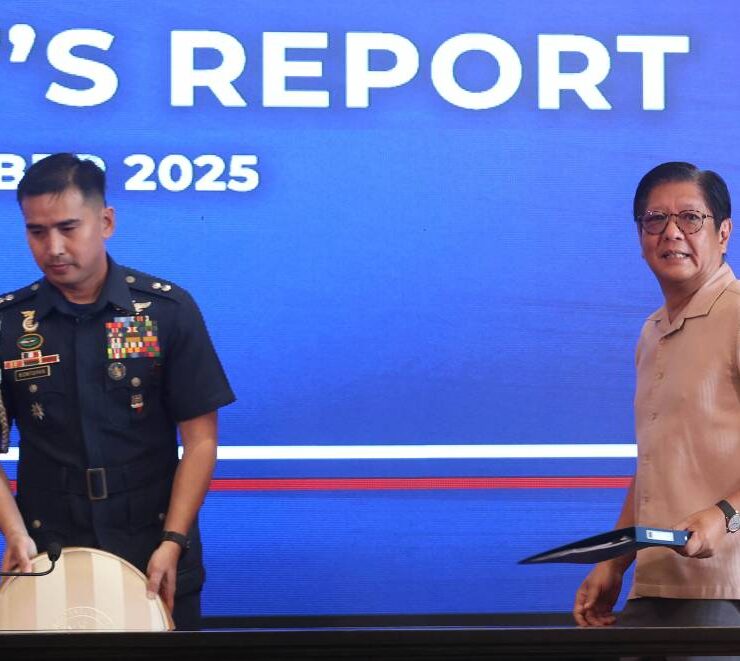Migrant group decries PH gov’t ‘silence’ on Pinoys held by ICE

A group of migrant workers in the United States on Friday castigated the Philippine Embassy in Washington for supposedly turning a blind eye on the bleak condition of Filipinos affected by the Trump administration’s iron-fisted immigration crackdown.
According to Filipino community organizers and health professionals who are part of Tanggol Migrante Movement USA (Tanggol Migrante), Filipinos detained in facilities of the Immigration and Customs Enforcement (ICE) are caught in “life-and-death” situations as they receive almost no support from the Philippine government from the time they are detained until they are repatriated and make the trip back to their homes.
Disease outbreaks
Some of them have contracted diseases due to outbreaks and lack of proper nutrition and physical and mental health care while in ICE custody.
ICE, which is under the Department of Homeland Security, is tasked with enforcing US immigration policies, including overseeing detention facilities, as well as monitoring the US borders.
“Philippine Ambassador [to the United States] Jose [Manuel] Romualdez has been relatively silent on the issue of just the immigration enforcement overall,” said Jom Dolor, a registered nurse who chose to pursue his career overseas after working at a public hospital in Manila.
Upon US President Donald Trump’s inauguration in January this year, Romualdez’s first advice for Filipinos who have legal issues in the United States was to “self-deport and just leave,” pointed out Dolor, who is now based in Washington.
Deportation target
“And that has kind of been the common refrain this whole past year of washing their hands of any accountability and continuously saying that they have to respect US law and that even apprehensions at the border that we’re seeing are being done in accordance with US law and customs,” Dolor said at an online briefing organized by Tanggol Migrante on Friday.
The Inquirer reached out to the Department of Foreign Affairs (DFA) but it has yet to get a response on the matter at press time.
Based on data gathered by the DFA from ICE authorities, 69 Filipinos were in immigration custody as of June this year. This information was shared during a Senate hearing in June.
For his second term in office, Trump set a deportation target of more than a million by the end of 2025.
‘Kuya G’
This is part of his agenda to supposedly clear US borders of illegal immigrants and criminals and hasten further their exodus.
In the case of one longtime Filipino immigrant, whom Tanggol Migrante identified only as “Kuya G,” a detainee at the Northwest Detention Center in Washington since last year, his hospitalization for bone infection and ulcerative colitis has been marked by “extreme fear” due to continuing surveillance of ICI agents.
“[The agents are] constantly breathing down his neck. We’ve also heard from nurses and other health-care staff that they feel intimidated and threatened by the agents’ presence on the floor, which hinders their ability to provide full care to Kuya G,” said Cora Cabello of Tanggol Migrante.
His condition only worsened during hospitalization because ICE authorities and the Philippine Embassy did not immediately respond to appeals for medical care.
“We’ve made monthly calls and demands to the Philippine Consulate and Embassy to intervene and to provide necessary and comprehensive medical attention. But unfortunately, we were met with silence,” Cabello said.
Veronica Velasquez, a Filipino working as an acute care physical therapist and a community organizer, recalled how ICE authorities mistreated migrants seeking medical care at a Los Angeles hospital where she is working.
“(One) patient was seriously harmed and needed medical care due to the ICE federal agents’ violent and aggressive methods of detaining migrants,” Velasquez said. “So when this patient needed care and time to heal from his severe injuries, he was instead placed under 24/7 surveillance with two to three ICE agents present inside his room.”
This has been the norm under Trump’s immigration policies, she noted.
Situation back home
There are Filipinos earlier detained by ICE and now back and safe in the Philippines. However, they face new challenges in obtaining the necessary medical care.
Dee Balitaan of Anakbayan USA said that Filipino migrant “Kuya Zanar” was recently deported to the Philippines, but upon his return he still had to go “in and out” of the hospital for stomach pain, a problem he developed while in ICE detention.
“After he was deported, he really had a hard time accessing (the) kind of medication he was given … He has to pay out of pocket because of his inability to access PhilHealth benefits,” she said.
A senior Filipino immigrant, whom Balitaan identified only as “Tita Rebecca,” 71, and who is due for repatriation later this year, is worried she would hardly have any family to return to, having been out of the country for the last 40 years.
“We know from other Filipinos who’ve been deported back to the Philippines that while they have very active health issues, they are often not able to access PhilHealth right away because they haven’t lived there long enough,” Balitaan said.
This inaction from the Philippine Embassy, as well as the DFA and the Department of Migrant Workers, has caused growing resentment among Filipinos in the United States, Tanggol Migrante said.
Cruelty, inhumanity
“The [US] government has shown really its cruelty and inhumanity for immigrants regardless of documentation,” said San Francisco-based Jason Singson, an epidemiologist and public health researcher.
Citing data from ICE, Singson said at least 15 people had died in ICE custody since Trump assumed office for his second term. “That is already more than half of all deaths in the previous four years,” he added.
Recent US media reports said Trump was considering replacing many ICE officials, being dissatisfied with the pace of the arrests and deportation.
But Tanggol Migrante said the “medical neglect” and lack of support from Philippine authorities all boiled down to human rights violations.
“Every person, regardless of race, status or background deserves immediate, equitable and compassionate treatment. Health care delayed is healthcare denied. And that’s not just a system failure; it’s a human rights issue,” said Kathleen Jabasa, a Filipino immigrant who survived the perils of labor trafficking and now working as a nurse in Washington.





















